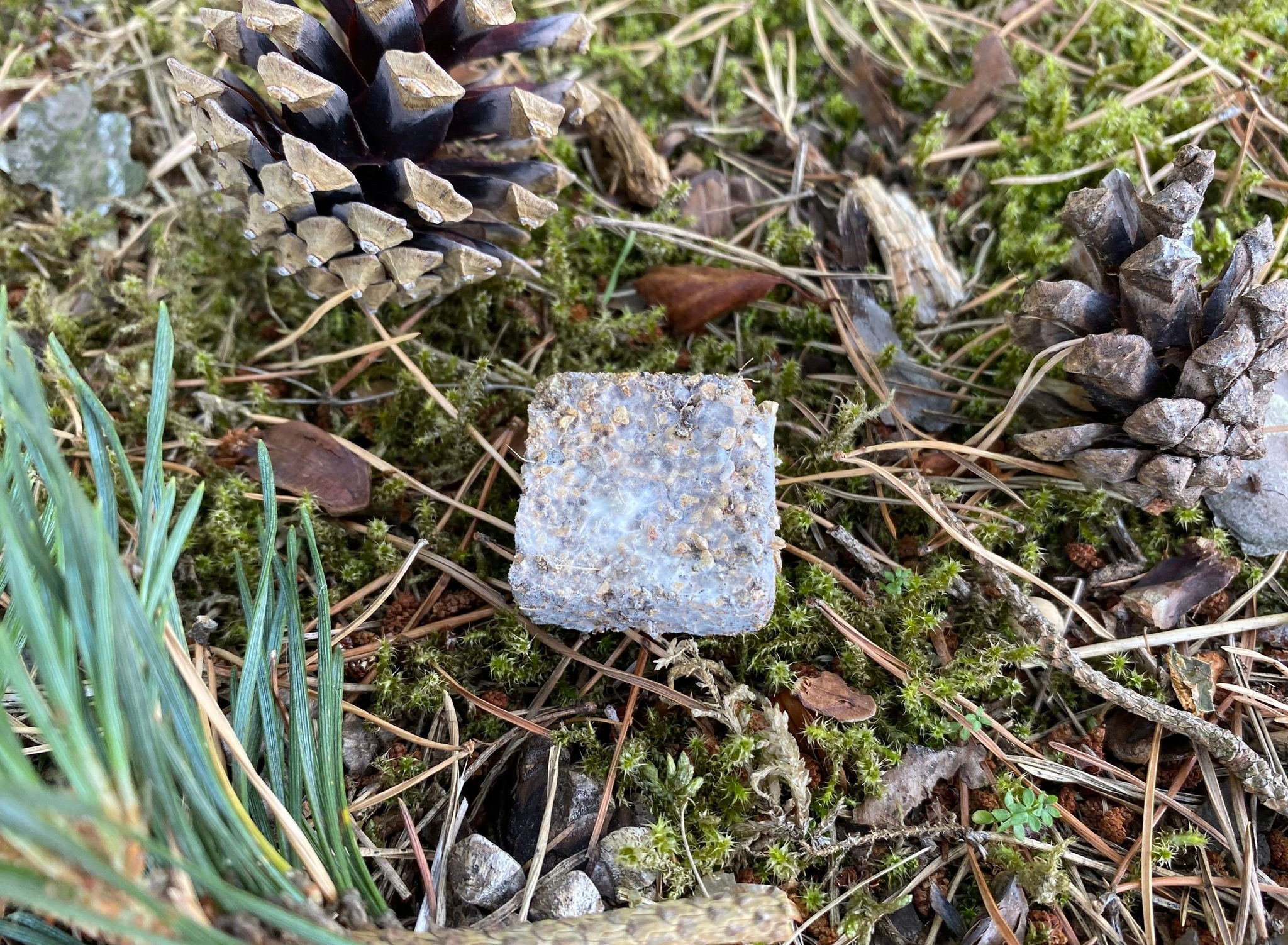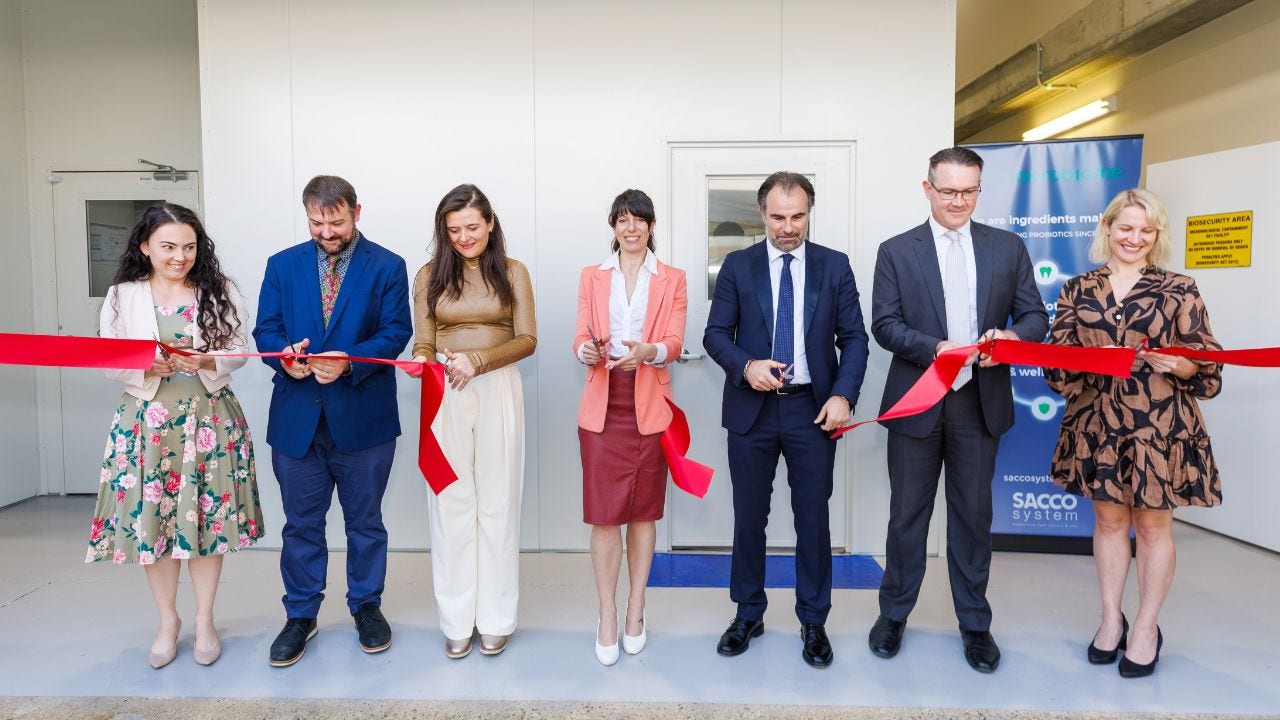Fungal biotechnology company, Rhizocore Technologies, develops fungal (mycorrhizal) pellets that are planted into the ground to restore soil health and fertility, which can accelerate tree growth and improve sapling survival rates.
The Scottish-based company launched in 2021 with the Rhizopellet, an eco-friendly alternative to fertiliser. The results are already impressive. The company is reporting results of:
- 20–25% improvement in tree growth
- 20% improvement in sapling survival in the first year
- faster growth in the first 5–10 years.
Rhizocore is now in Australia with big plans to transform the country’s forestry and carbon industries, for starters.
Reducing costs and risks for forestry projects
What makes the Rhizopellet effective is that it is created with the local fungi of the land where it will be planted.
Each customer receives a tailored package of fungi based on their bioregion, trees and other site information. The fungi are delivered in a pellet, which can be planted directly into the soil along with the tree.
The pellet was developed in consultation with tree planters to be easy to handle and incorporate into the planting process. This ensures the planting process is efficient. It reduces the risk of transplant shock for the spores and gives them the best chance of growing.
The improved growth and survival rates can significantly reduce costs and risks in the crucial early phase of forestry projects. By enabling trees to grow in highly depleted soils with very few accessible nutrients, the technology could unlock cheaper, poorer quality land for reforestation projects.
Rhizocore’s technology is enabling predictable results at scale.
‘The Rhizopellets replace fertiliser, saving fertiliser costs and reducing detrimental effects such as runoff into waterways,’ says Rhizocore’s Chief Operating Officer, Jack Hooper. ‘The protective effect of the fungal network also makes forests more resistant to drought and disease.’
 The Rhizopellet restores soil health and fertility, which can accelerate tree growth and improve sapling survival rates.
The Rhizopellet restores soil health and fertility, which can accelerate tree growth and improve sapling survival rates.
Transplanting the process around the world
Underpinning Rhizocore’s work is an extensive, and growing, library of fungal strains catalogued by region, soil type and associations with particular tree species. Drawing on this library makes it faster to develop product for a customer in any region already catalogued.
However, entering a new region is a longer process. Mushrooms need to be harvested during the fruiting season, which are isolated as pure cell cultures for storage and subsequently grown and inoculated into pellets. Samples are then tested to ensure they contain living mycelium and only those strains required.
It was not a simple process to move to the other side of the world. However, establishing in Australia was an important next step for Rhizocore’s growth. The southern hemisphere location allows the company to spread seasonal peak workloads.
‘Australia offers the opportunity to explore and test the product in a different physical and geographical environment,’ says Hooper. ‘The country’s developing carbon farming industry, shift to plantation forestry, and growing number of biodiversity and regeneration projects offer exciting opportunities to develop Rhizocore’s product.’
Austrade support plants the seeds of success
Rhizocore was confident its product and processes would meet Australia’s strict bioregulatory environment. The company does not move biological materials across national borders. However, it needed to ship the sterile pellets of substrate.
‘That required explaining to Australia’s biosecurity authorities what the product was and how it worked so that they could assess the risk,’ says Hooper. ‘It doesn’t neatly fit into a box on the form, so Austrade’s introduction to the right people was invaluable.’
‘We knew Rhizocore needed to start sampling and collecting as soon as they arrived in Australia,’ says Julianne Davis, Austrade Director, Investment UK and Ireland. ‘That meant engaging local specialist staff immediately, as well as finding premises, setting up business structures and connecting with the right customers.’
Austrade’s support has seen Rhizocore develop and deliver pellets in the ground 11 months after arriving in Australia.
Underground explorations of the fungal kind
Rhizocore has bigger goals, however, when it comes to discovering, protecting and restoring fungal biodiversity.
‘Fungi have incredible abilities; antibiotics are only one example of things they can do,’ explains Hooper. ‘We’re only just starting to tap into the possibilities. There are an estimated 2.5 million species of fungi, and we know fewer than 10%.
‘Australia has so many interesting environments. It’s possible we could discover some species here that are still unknown to modern science.’
More about Agrifood tech in Australia.
Subscribe to the Investment Update newsletter
Find out about new investment opportunities, insights and investor success stories across Australia.


